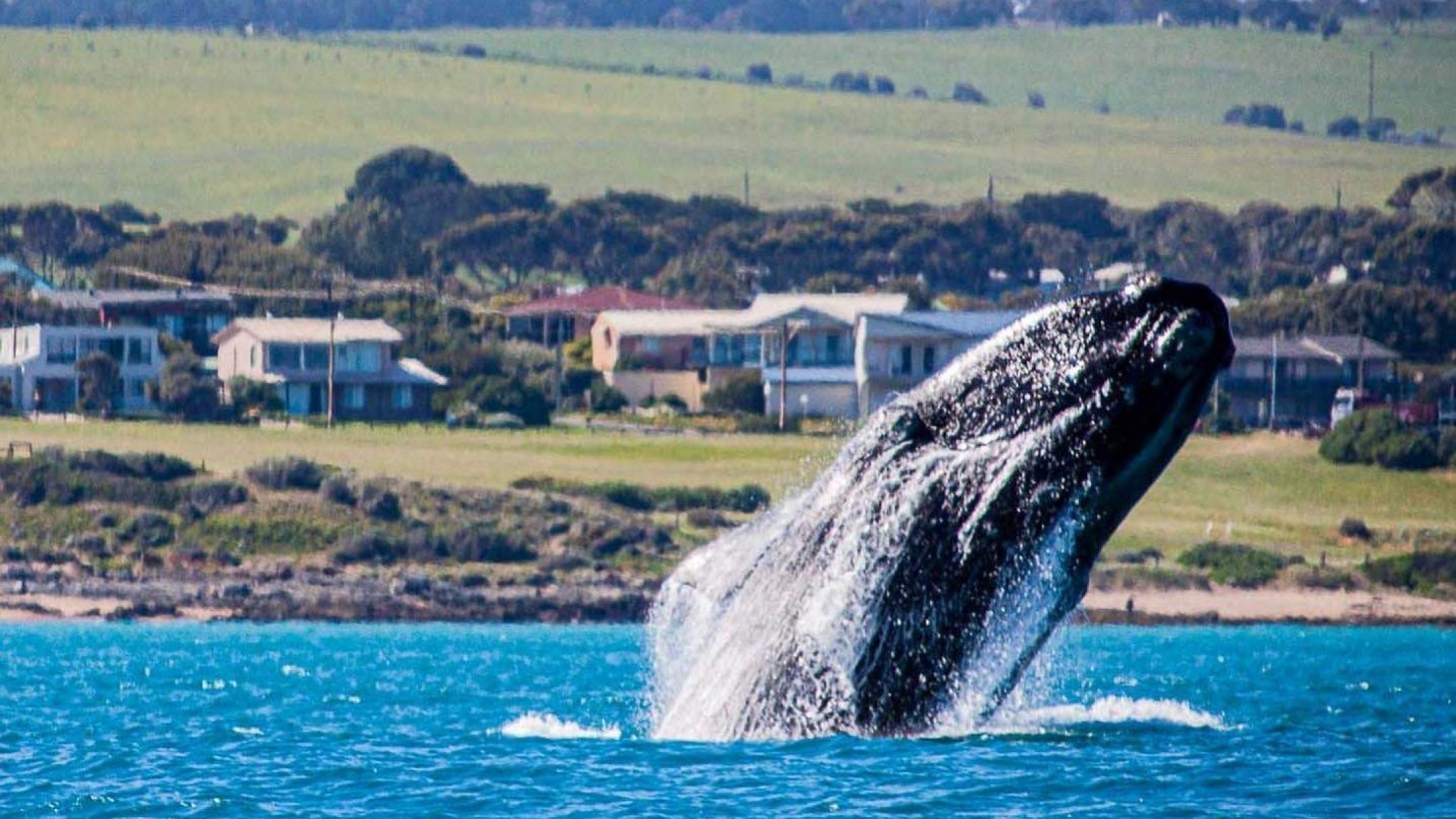Controversial works to replace the Victor Harbor causeway will be halted if a whale is spotted within 1 kilometre of pile driving, the South Australian Government has promised.
Key points:
- The SA Government has proposed a 1km whale exclusion zone from causeway works
- A study has found that about five calves are born in Encounter Bay every year
- A protest petition against replacing the Victor Habor causeway has passed 10,000 signatures
It follows warnings by Encounter Bay Right Whale Study (EBRWS) chief investigator Claire Charlton, from Curtin University, who said the bay was an established nursing ground for the endangered species.
“The noise from pile driving is an impulsive, low-frequency noise and it overlaps with the sensitive hearing range for the whales,” she told ABC Radio Adelaide.
“We are concerned about behavioural disturbances and the masking of communication.”
Whale exclusion zone increased
The Government wants to replace the 150-year-old causeway with a concrete and steel structure at a cost of $31.1 million.
In its revised Environment and Heritage Summary Report released in December, the Department for Infrastructure and Transport (DIT) said a 300-metre exclusion zone would be established during works to drive piles into the seabed.
If a whale, dolphin, seal or little penguin is observed within that zone, all pile driving works would cease and not recommence until the animals moved outside the zone and 30 minutes had passed since the last sighting.
A DIT spokesperson on Friday said a larger exclusion zone was being proposed for whales.
“The shallow water, combined with the modified piling gate to be used during piling works, will limit any potential noise impacts to whales to within 200m of piling works.”
‘Established’ calving area
The EBRWS considers Encounter Bay to begin south-west of Victor Harbor at Newland Head, from where it stretches nearly 40km to the Murray Mouth, east of Goolwa.
It believes that while the bay is currently listed as an “emerging calving aggregation area” for southern right whales — with fewer than three calves born in the area annually — locally collected data suggests the number was more than five.
Loading
The EBRWS subsequently wants the area to be considered an “established” aggregation area.
Dr Charlton said the causeway’s construction schedule should be moved so that it did not occur within the May to November whale season.
“It could have a really significant and lasting impact for the whales that are still really establishing in the area of Encounter Bay.”
The DIT spokesperson said a start date would be confirmed once the State Commission Assessment Panel process had been finalised.
“With the proposed precautions and mitigation measures in place … there should be no need to stop piling from May to November, as any whales spotted approaching or within the exclusion zone would result in all piling works temporarily ceasing,” he said.
Protest petition passes 10,000
The Government last year declared that the 150-year-old causeway “was approaching the end of its useful life”, despite having recently undertaken repair works so that one of the world’s last remaining horse-drawn trams could continue to operate.
It was also despite Freedom of Information documents revealing that the same engineering company that recommended the causeway be replaced in 2019, in 2010 outlined how it should be preserved due to its importance for tourism and the local community.
A protest petition launched last year against replacing the heritage causeway has attracted more than 10,000 signatures.
The DIT spokesperson said the Government had been undertaking engagement activities with the community and key stakeholders since 2019, including an information session, uploading information to a website, and housing a project team at the local information centre for face-to-face contact.
He said further public information sessions would be held on February 12 and 14.
“The department is committed to continuing to engage with the community throughout the project,” the spokesperson said.




